Integrated Desert Farming - a COP28 Showcase
- From
-
Published on
07.12.23
- Impact Area

Mr. Aly Abousabaa, ICARDA Director General and Regional Director of CWANA, CGIAR, led a visit, hosted by the nearby ICBA research site, at which regional partners attended along with board members from CGIAR Centers such as ICARDA’, IFPRI, IWMI, and WorldFish. Attendees examined for the first time, the individual elements in action, that make up IDFIP’s evidence-based agri innovations, working as a whole to reduce water and energy use, generate jobs, optimize fragile agro-biodiversity, and rehabilitate degraded land.
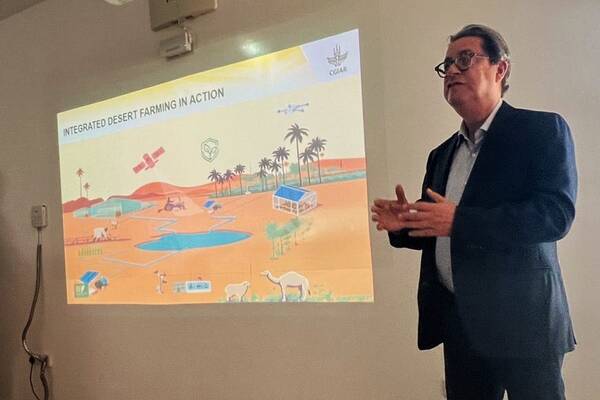
“Each partner here is specialized in their science, be that water, fish, crops, or land. The key to this initiative is how each of these integrates towards the whole.” – Aly Abousabaa, ICARDA Director General and Regional Director of CWANA, CGIAR
The visit took place at ICBA’s site on the outskirts of Dubai, providing an opportunity to showcase IDFIP, which represents a united effort between four CGIAR centers—ICARDA, IFPRI, IWMI, and WorldFish—in partnership with MoCCaE UAE, GCC, and ICBA, to enhance cooperation and mutual support in CWANA.
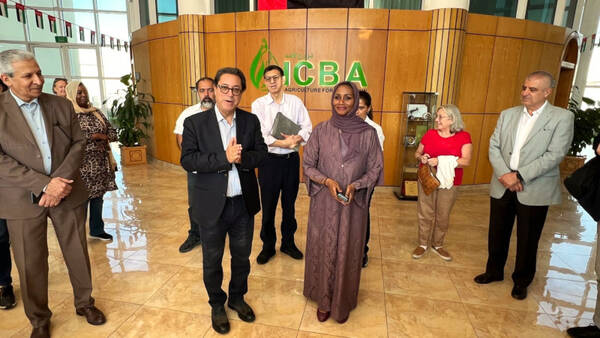
“Science is the core of what we do, but working with partners is how we make sure it happens and how innovations get to the field.” – Dr. Tarifa Al Zaabi, Director General, ICBA
Through closed and recyclable systems, IDFIP aims to transform deserts into highly productive food powerhouses, benefiting not just smallholder farmers, but larger commercial endeavors such as the UAE’s ‘protected agriculture’ (greenhouse) sector that produces high-value vegetables. IDFIP achieves up to an 80% reduction in water and energy use through innovations such as net houses and root cooling systems, and the reuse of water from aquaculture that is either filtered back into fish pools or directed, along with fish waste, to irrigate and nurture crops.
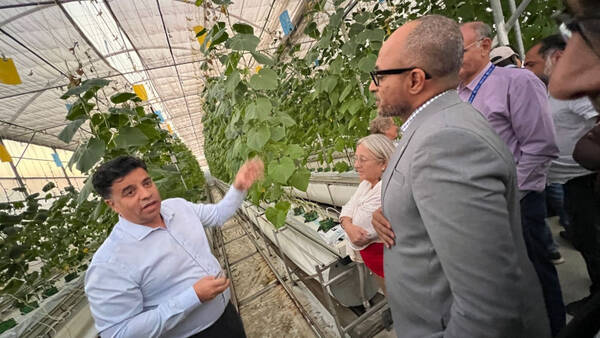
“Many challenges are being solved because CGIAR centers and partners are working together, sharing knowledge, expertise, and providing solutions as one.” – Dr. Essam Yassin Mohammed, WorldFish Director General, and CGIAR’s Senior Director of Aquatic Foods.
By exploring the prototype site, attendees gained valuable insights into the transformative potential of IDFIP in creating sustainable and productive agricultural systems and how each center’s expertise contributes to the program, showing the collective power not just of OneCGIAR, but of how knowledge sharing between partners can drive groundbreaking innovation.
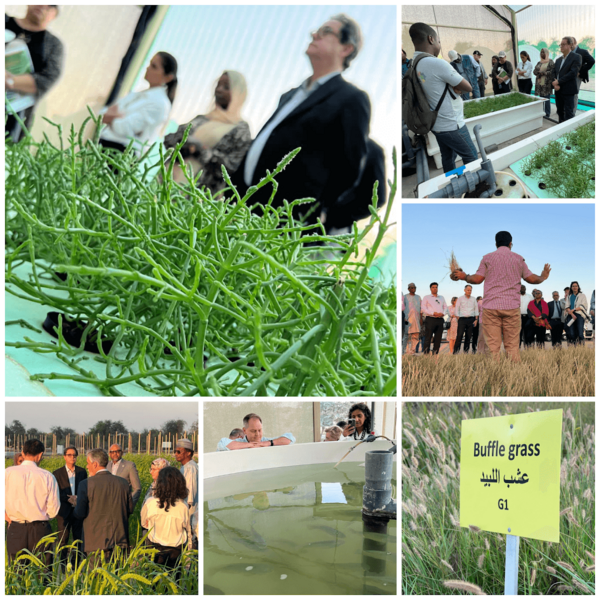
By harnessing shared knowledge and expertise, CGIAR and its partners are actively working towards achieving food security, poverty reduction, and resilient livelihoods in the face of climate change.
As we move forward, it is with great enthusiasm that we continue to contribute to global efforts in combating the climate crisis. Together, we remain committed to advancing agricultural innovation, building resilience, and creating a sustainable future under climate change for the communities we serve.
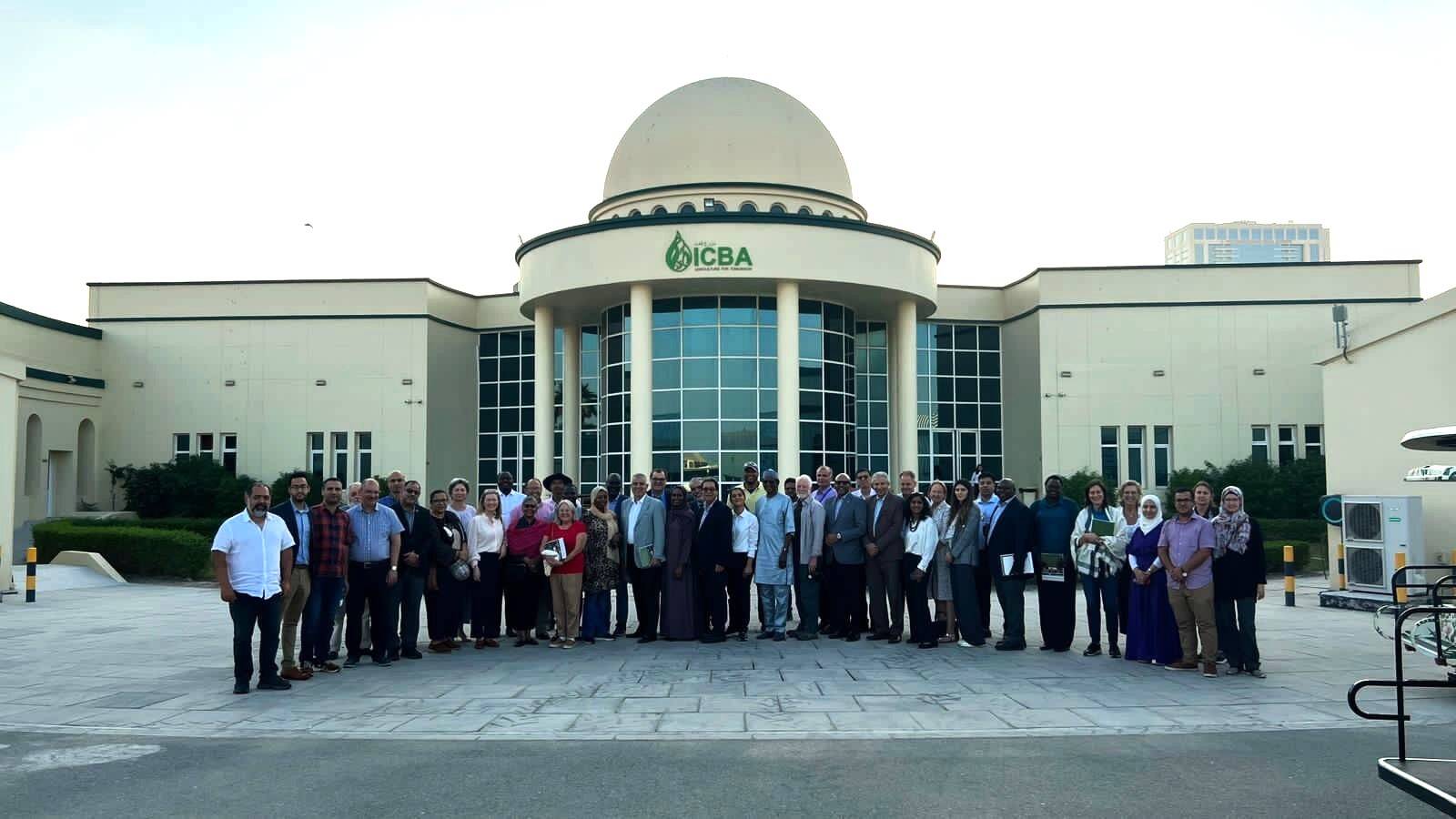
Related news
-

ICRISAT to Deliver World-Class Services as CGIAR’s Breeding Resources South Asia Hub
International Crops Research Institute for the Semi-Arid Tropics (ICRISAT)07.07.25-
Biodiversity
-
Food security
Strategic collaboration to scale innovation and deliver harmonized, high-quality support across CGIA…
Read more -
-

ICRISAT to deliver world-class services as CGIAR's Breeding Resources South Asia Hub
Breeding for Tomorrow07.07.25-
Nutrition, health & food security
Strategic collaboration to scale innovation and deliver harmonized, high-quality support across CGIA…
Read more -
-

Multifunctional Landscapes that reconcile food production, with ecosystem restoration and biodiversity conservation
Multifunctional Landscapes Science Program06.07.25-
Biodiversity
-
Environmental health & biodiversity
The CGIAR Multifunctional Landscapes Science Program (MFL SP) is driven by a bold vision of…
Read more -
